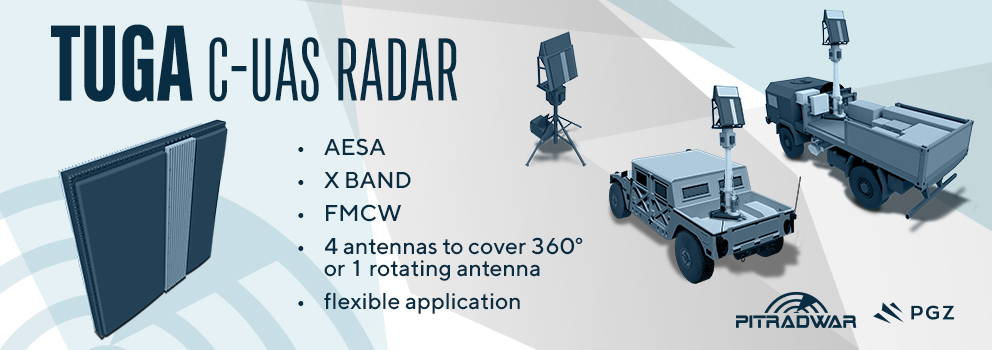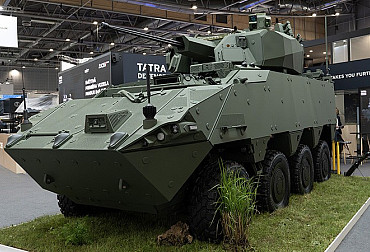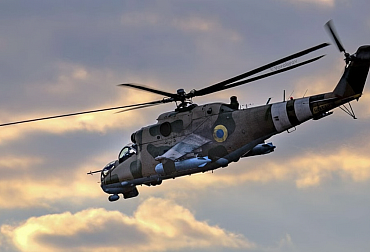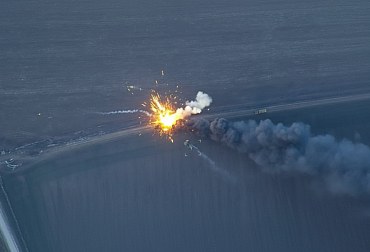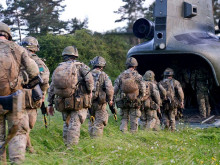Training of Ukrainian soldiers until the end of 2024. Continuation of most foreign missions approved
The Czech army will train soldiers from Ukraine next year as well. The Chamber of Deputies approved the continuation of training activities of the Czech Army within the framework of the European Union Assistance Mission in Support of Ukraine a few days ago. The current number of Czech instructors in the mission will also be increased from 55 to 70. The Lower House of Parliament also approved the extension of most other foreign missions of Czech soldiers, except for the operation in Niger, Africa.
Following the Senate's prior approval, the continuation of the training of Ukrainian soldiers on our territory was also approved by the MPs by an unanimous vote of 129 out of 150 present - only the SPD was against it, as it sees this aid to the Russian-occupied country as prolonging the conflict. A total of CZK 115 million has been earmarked for foreign missions next year, compared to CZK 24 million this year. The costs include, among other things, expenses for the stay of Ukrainian soldiers on our territory.
"The financial expenses related to the stay of the armed forces of other states on the territory of the Czech Republic for the purpose of training members of the armed forces of Ukraine in 2024 are estimated at CZK 252 million," said Defence Minister Jana Černochová, according to whom the foreign missions confirm the position of the Czech Republic as a responsible ally and partner and also serve to improve the condition and functionality of Czech military units.

In addition to the confirmation of the continuation of training of the Armed Forces of Ukraine within the European Union Military Assistance Mission (EUMAM UA), the number of instructors will be increased. "The proposal maintains the current numbers for the stay, i.e. up to 800 persons at any one time. The new proposal expands the number of instructors from NATO countries for training beyond the EU assistance mission for Ukraine," said Defence Minister Jana Černochová, adding that the number of instructors of the Czech Army who can operate on the territory of EU countries within the EU assistance mission will increase from the current 55 to 70 persons. The proposal also allows for the involvement of up to 20 military instructors in the training of Ukrainian soldiers on the territory of NATO states outside the EU assistance mission.
Czech soldiers have already trained about 3 500 Ukrainian colleagues on our territory, and another 500 have undergone Czech training in Poland. According to the Ministry of Defence, the increase in the number of instructors results from the increased need for interpreters and soldiers taking care of logistics and support for mobile teams.

The training activities of the Czech Army within EUMAM UA are divided into stationary and mobile parts. The former consists of training, which is primarily focused on the training of members of a mechanised battalion, with a gradation of training from the platoon and company level, and takes place on our territory in the Libavá Military Recreation Area. It also provides training for specialists in the fields of engineer, medical, precision shooting and protection against weapons of mass destruction (chemists). The Military Academy in Vyškov is also involved in this process.

It is responsible for the training of battalion staff members and commanders at platoon and company level, as well as training for urban combat. The mobile module is responsible for training support within the European mission and is composed of specialised teams of engineers, snipers, medics and chemists. Their deployment on the territory of the EU Member States is coordinated in cooperation with the ACR Liaison Officer, who is integrated into the structure of the multinational CAT-C (Combined Arms Training - Command) in Poland, with the mobile teams travelling to Poland for approximately 35 days and then returning to the Czech Republic to replenish forces and equipment.
Slovakia, Iraq and Sinai yes, Niger no more
At present, members of the Czech Armed Forces are deployed on several foreign missions, e.g. in Lithuania, Latvia, Slovakia, Kosovo, Bosnia and Herzegovina, Iraq, Sinai, Israel and, until the end of the year, in Niger. The currently approved proposal for the deployment of the forces and assets of the Ministry of Defence in foreign operations extends the vast majority of the existing mandates and some of them will be renewed.
For example, the number of soldiers in the Althea mission, which is led by Maj. Eva Divišková, from 8 to 12. The soldiers will oversee further assistance to and training of the country's armed forces, as well as building a secure and stable environment. Another change towards more troops on the mission is also to be made in the Mediterranean Operation Irini in the naval mission command centre, which is to detect and dismantle migrant smuggling networks while contributing to the implementation of the UN arms embargo on Libya, both at sea and from the air using satellites and aircraft. The number of this crew, led by Colonel Jan Janda, will be doubled from 5 to 10 soldiers.
The mission in Slovakia (MN BG SVK), which was created in response to Russian aggression in Ukraine and NATO's need to increase its presence on the eastern flank, should continue unchanged. The Multinational Force and Observers Organisation in Sinai, Egypt, continues with the same composition, with a total of 20 ground and air personnel with CASA C-295M aircraft. The mission in Iraq will also continue with the aim of stabilising the security situation in the area.
Conversely, the Government has no longer extended the mission of our troops in Niger, which underwent a military coup in July and the operational mission there was suspended at that time due to the coup. "The internal political situation in the country is complex and longer-term developments are difficult to predict. That is why in the material we did not ask for approval to operate in Niger in 2024," says the head of the defence ministry, Jana Černochová.
For the sake of completeness, let us add that the currently approved proposal for the deployment of the forces and means of the Ministry of Defence in foreign operations did not include the previously approved separate Kosovo mission of the Military Police or their involvement in the activities of the International Criminal Court in connection with the detection of war crimes by the Russian occupiers in Ukraine.
